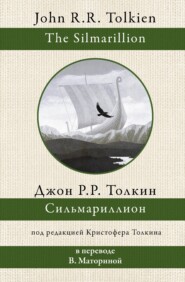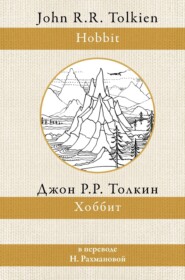По всем вопросам обращайтесь на: info@litportal.ru
(©) 2003-2024.
✖
The Lord of the Rings: The Fellowship of the Ring, The Two Towers, The Return of the King
Автор
Год написания книги
2018
Настройки чтения
Размер шрифта
Высота строк
Поля
‘If only that dratted wizard will leave young Frodo alone, perhaps he’ll settle down and grow some hobbit-sense,’ they said. And to all appearance the wizard did leave Frodo alone, and he did settle down, but the growth of hobbit-sense was not very noticeable. Indeed, he at once began to carry on Bilbo’s reputation for oddity. He refused to go into mourning; and the next year he gave a party in honour of Bilbo’s hundred-and-twelfth birthday, which he called a Hundred-weight Feast. But that was short of the mark, for twenty guests were invited and there were several meals at which it snowed food and rained drink, as hobbits say.
Some people were rather shocked; but Frodo kept up the custom of giving Bilbo’s Birthday Party year after year until they got used to it. He said that he did not think Bilbo was dead. When they asked: ‘Where is he then?’ he shrugged his shoulders.
He lived alone, as Bilbo had done; but he had a good many friends, especially among the younger hobbits (mostly descendants of the Old Took) who had as children been fond of Bilbo and often in and out of Bag End. Folco Boffin and Fredegar Bolger were two of these; but his closest friends were Peregrin Took (usually called Pippin), and Merry Brandybuck (his real name was Meriadoc, but that was seldom remembered). Frodo went tramping over the Shire with them; but more often he wandered by himself, and to the amazement of sensible folk he was sometimes seen far from home walking in the hills and woods under the starlight. Merry and Pippin suspected that he visited the Elves at times, as Bilbo had done.
As time went on, people began to notice that Frodo also showed signs of good ‘preservation’: outwardly he retained the appearance of a robust and energetic hobbit just out of his tweens. ‘Some folk have all the luck,’ they said; but it was not until Frodo approached the usually more sober age of fifty that they began to think it queer.
Frodo himself, after the first shock, found that being his own master and the Mr. Baggins of Bag End was rather pleasant. For some years he was quite happy and did not worry much about the future. But half unknown to himself the regret that he had not gone with Bilbo was steadily growing. He found himself wondering at times, especially in the autumn, about the wild lands, and strange visions of mountains that he had never seen came into his dreams. He began to say to himself: ‘Perhaps I shall cross the River myself one day.’ To which the other half of his mind always replied: ‘Not yet.’
So it went on, until his forties were running out, and his fiftieth birthday was drawing near: fifty was a number that he felt was somehow significant (or ominous); it was at any rate at that age that adventure had suddenly befallen Bilbo. Frodo began to feel restless, and the old paths seemed too well-trodden. He looked at maps, and wondered what lay beyond their edges: maps made in the Shire showed mostly white spaces beyond its borders. He took to wandering further afield and more often by himself; and Merry and his other friends watched him anxiously. Often he was seen walking and talking with the strange wayfarers that began at this time to appear in the Shire.
There were rumours of strange things happening in the world outside; and as Gandalf had not at that time appeared or sent any message for several years, Frodo gathered all the news he could. Elves, who seldom walked in the Shire, could now be seen passing westward through the woods in the evening, passing and not returning; but they were leaving Middle-earth and were no longer concerned with its troubles. There were, however, dwarves on the road in unusual numbers. The ancient East–West Road ran through the Shire to its end at the Grey Havens, and dwarves had always used it on their way to their mines in the Blue Mountains. They were the hobbits’ chief source of news from distant parts – if they wanted any: as a rule dwarves said little and hobbits asked no more. But now Frodo often met strange dwarves of far countries, seeking refuge in the West. They were troubled, and some spoke in whispers of the Enemy and of the Land of Mordor.
That name the hobbits only knew in legends of the dark past, like a shadow in the background of their memories; but it was ominous and disquieting. It seemed that the evil power in Mirkwood had been driven out by the White Council only to reappear in greater strength in the old strongholds of Mordor. The Dark Tower had been rebuilt, it was said. From there the power was spreading far and wide, and away far east and south there were wars and growing fear. Orcs were multiplying again in the mountains. Trolls were abroad, no longer dull-witted, but cunning and armed with dreadful weapons. And there were murmured hints of creatures more terrible than all these, but they had no name.
Little of all this, of course, reached the ears of ordinary hobbits. But even the deafest and most stay-at-home began to hear queer tales; and those whose business took them to the borders saw strange things. The conversation in The Green Dragon at Bywater, one evening in the spring of Frodo’s fiftieth year, showed that even in the comfortable heart of the Shire rumours had been heard, though most hobbits still laughed at them.
Sam Gamgee was sitting in one corner near the fire, and opposite him was Ted Sandyman, the miller’s son; and there were various other rustic hobbits listening to their talk.
‘Queer things you do hear these days, to be sure,’ said Sam.
‘Ah,’ said Ted, ‘you do, if you listen. But I can hear fireside-tales and children’s stories at home, if I want to.’
‘No doubt you can,’ retorted Sam, ‘and I daresay there’s more truth in some of them than you reckon. Who invented the stories anyway? Take dragons now.’
‘No thank ’ee,’ said Ted, ‘I won’t. I heard tell of them when I was a youngster, but there’s no call to believe in them now. There’s only one Dragon in Bywater, and that’s Green,’ he said, getting a general laugh.
‘All right,’ said Sam, laughing with the rest. ‘But what about these Tree-men, these giants, as you might call them? They do say that one bigger than a tree was seen up away beyond the North Moors not long back.’
‘Who’s they?’
‘My cousin Hal for one. He works for Mr. Boffin at Overhill and goes up to the Northfarthing for the hunting. He saw one.’
‘Says he did, perhaps. Your Hal’s always saying he’s seen things; and maybe he sees things that ain’t there.’
‘But this one was as big as an elm tree, and walking – walking seven yards to a stride, if it was an inch.’
‘Then I bet it wasn’t an inch. What he saw was an elm tree, as like as not.’
‘But this one was walking, I tell you; and there ain’t no elm tree on the North Moors.’
Вы ознакомились с фрагментом книги.
Приобретайте полный текст книги у нашего партнера:
Приобретайте полный текст книги у нашего партнера:














